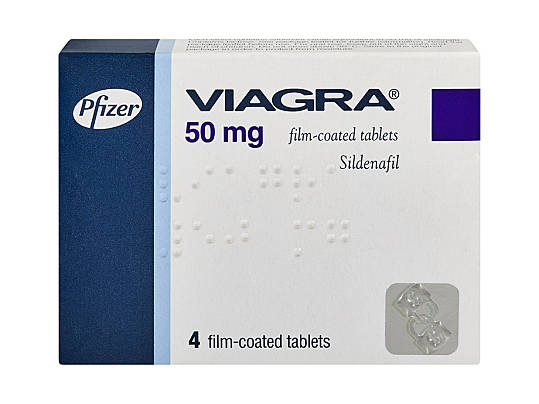Losing an Erection During Sex: Why & What To Do

Medically reviewed by
Dr Kathryn BasfordLast reviewed: 21 Mar 2022
Losing an erection during sex can happen to you at any time and at any age. It’s usually nothing to be concerned about, but if it’s happening quite often, you might have erectile dysfunction. The good news is that you can treat erectile dysfunction with changes to your lifestyle or with the help of the right medications.
What causes you to lose an erection?
Erectile dysfunction can happen to you for a few different reasons. These can be physical, such as having a medical condition like diabetes, or psychological, such as being stressed.
You might lose an erection if the nerves and blood vessels around your penis are not working as they should. Normally, when you’re sexually aroused, your nerves are stimulated to cause an increase in blood flow to your penis. The blood flow causes the tissue inside your penis to become full, which leads to an erect or hard penis.
So anything that affects the stimulation of your nerves, or the way your blood vessels work, will impact your ability to have an erection.
Common physical causes
Some physical causes can affect how your blood vessels work. And this might mean you lose an erection more often. These physical causes include:
- diabetes
- high blood pressure
- high cholesterol levels
- being overweight or obese
- other long term health conditions you might have
When your blood vessels are damaged by these physical causes, it makes it difficult to get or maintain an erection. You can reduce and prevent this damage by managing these physical causes as advised by your doctor or nurse.
Although erectile dysfunction can affect you at any age, it’s more likely to happen if you are over the age of 50. This is because as you get older your blood vessels can get weaker, so your body will find it difficult to maintain a good blood flow to your penis.
Certain lifestyle choices can also affect your ability to get an erection, such as:
- smoking
- drinking more alcohol units than recommended
- binge drinking alcohol
- regularly eating foods that are high in fat, salt and sugar
Some medications can also have side effects that make it difficult to get an erection.
If you need help to bring these physical causes under control and treat erectile dysfunction, speak to a doctor to make a plan tailored to you.
Common psychological causes
Your ability to have an erection can be affected by psychological causes. So if you have a mental health condition such as depression or anxiety, there are ways to manage these conditions to make it easier to maintain an erection.
If you feel stress plays a major role in your life, it can affect sex and your relationships. This might be stress from work, family or anything that’s not allowing you to relax. It’s important to be able to manage stress so you can maintain your general wellbeing, and to improve erectile dysfunction.
Being worried about your sexual performance may also affect how easily you lose an erection.
To help ease psychological causes before you have sex, you can try:
- deep breathing exercises to calm your mind
- having a relaxing warm bath or shower
- doing some gentle stretches to release muscle tension
Speaking to your partner about your worries can help them understand you better and lead to a stronger emotional connection. When you’re connected with your partner you’ll feel more comfortable during sex, which can take your mind off of being worried.
Does losing an erection mean I have erectile dysfunction?
If you lose an erection this does not mean you have erectile dysfunction. It’s common to lose an erection every now and then because you might be tired, stressed or feeling anxious. This is completely normal and nothing to worry about.
If you cannot maintain an erection each time you have sex, this might mean you have erectile dysfunction. It’s always best to speak to a doctor to find out and get help.
Does losing an erection mean I’m not aroused?
Losing an erection does not mean you’re not aroused. You can still be aroused but might feel tired, or have had too much alcohol to drink. Being aroused and not being able to maintain an erection does not mean you have erectile dysfunction.
If you regularly lose an erection despite being aroused, speak to a doctor to find out if there is an underlying cause.
How to stop losing an erection
You can stop losing an erection by:
- trying different medications, such as tablets or cream
- changing aspects of your lifestyle, such as what you eat
- having psychotherapy sessions, to help with your mental health
Medication
Medications to treat erectile dysfunction that you can choose from include tablets or cream.
Tablets like Viagra or Levitra are medications that contain phosphodiesterase type-5 (PDE5) inhibitors. PDE5 inhibitors are a type of drug that increases blood flow to the penis when you are sexually aroused.
If you cannot swallow tablets or have an allergy to them, you can try Vitaros cream. Vitaros cream contains the active ingredient alprostadil, which helps improve blood flow to the penis. It works faster than PDE5 tablets and is an effective alternative if you have nerve damage.
These medicines are available to request from Asda Online Doctor. You can fill out an online form today and get your erectile dysfunction medication by tomorrow, safely and securely.

No results found.
Please check your spelling or try another treatment name.
Lifestyle changes
Lifestyle changes can be just as helpful as taking medication to treat erectile dysfunction. You can try:
- to stop smoking
- increasing how much exercise you do per week
- drinking less alcohol, particularly before you have sex
If you think your current medication is causing you to lose your erection, speak to a doctor or pharmacist. They can find out if you can switch to an alternative medication.
Psychotherapy
Psychotherapy can help address the emotional factors behind sex. Emotions play an important role in your sexual performance, and negative emotions can impact your confidence. They can make you worry about how you’ll perform during sex.
You can speak to a doctor to find out more about sex therapy or find a private therapist through the College of Sexual and Relationship Therapists.

Dr Kathryn Basford is a qualified GP who works as a GP in London, as well as with ZAVA. She graduated from the University of Manchester and completed her GP training through Whipps Cross Hospital in London.
Meet our doctorsArticle created: 26 Nov 2021
Last reviewed: 21 Mar 2022
-
Erectile dysfunction (NHS) [Aug 2020] [accessed Nov 2021]
-
Erectile dysfunction (ED) [June 2018] [accessed Nov 2021]




(Reviews are for ZAVA UK)


GMC: 7074021

GMC: 6149061

GMC: 7085115










